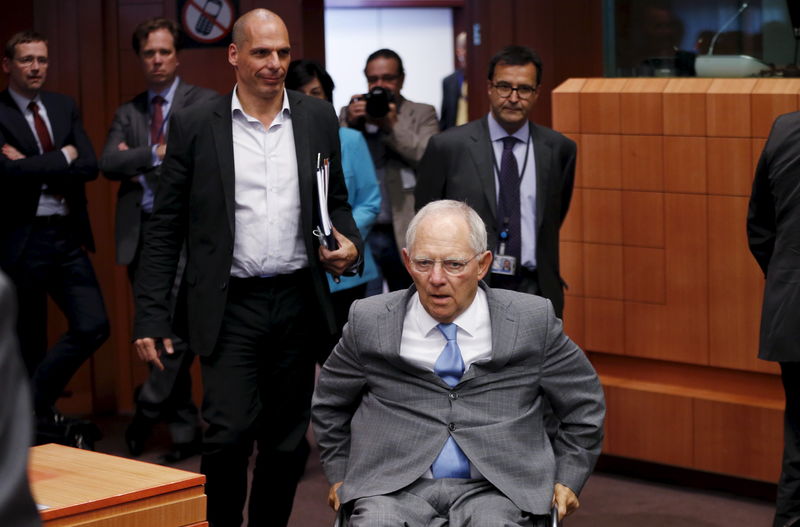BRUSSELS (Reuters) - German Finance Minister Wolfgang Schaeuble said on Tuesday he saw a compromise emerging on one of several issues dividing EU states which are trying to negotiate a common tax on financial transactions.
At a news conference following a meeting of EU finance ministers in Brussels, Schaeuble echoed the Austrian minister who is leading the negotiations among the 11 states involved, in saying that the tax would not be ready to be introduced next year, as French officials had recently said might be possible.
One area of progress, however, was in overcoming differences on where the tax would be levied -- on equities, it could be imposed in the country where the trade occurred, while on derivatives it could be where the security was issued.
In a mark of continued differences, Austrian Finance Minister Hans Joerg Schelling said on Monday some of the 11 states involved were trying to exclude interest-rate derivatives entirely from the tax.
The tax, first proposed in the 1970s to penalise currency speculators, was seized on by France and Germany in 2012 as a way to correct the excesses that led to the worst financial crisis in a generation.
But talks became mired in disputes over how to levy the tax and whether to include derivatives. Britain, the biggest financial market in Europe, opposed the idea, along with Luxembourg, another financial centre.

Various countries tried to win exemptions to shield their financial institutions, raising doubts on whether the tax would ever come to pass. Eleven countries ended up engaged in talks over the tax, with Austria leading the initiative.